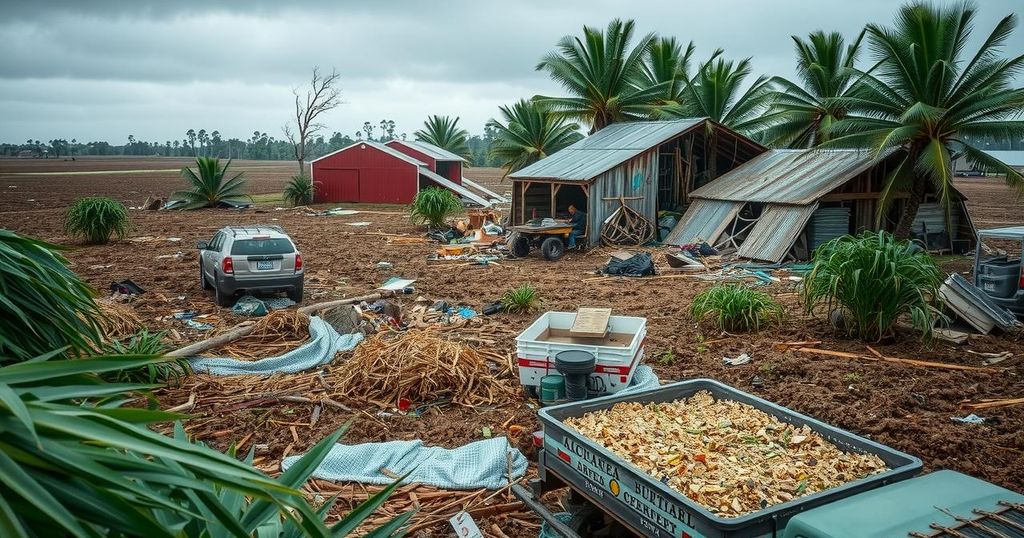Southern Farmers Confront Long Recovery After Hurricane Helene’s Devastation
Months after Hurricane Helene, farmers in the South are struggling with the extensive damages to crops, infrastructure, and severe financial losses, estimated over $10 billion. Many are left questioning their prospects for recovery amidst emotional tolls and the need for timely aid. State government measures provide some assistance, but many face long-term rebuilding challenges and potential impacts on market prices.
Farmers in Georgia and surrounding Southern states continue to grapple with the aftermath of Hurricane Helene, which struck in late September. The storm wreaked havoc on crops and infrastructure, leading to estimated damages exceeding $10 billion across multiple states. Chris Hopkins, a cotton and peanut farmer in Toombs County, reported devastating losses, unable to salvage much of his harvest. Experts noted that Georgia farmers faced over $5.5 billion in damages, with North Carolina and Virginia reporting billions in additional losses. The emotional toll on farmers is significant as they question the viability of rebuilding after such disaster.
Despite governmental emergency loans designated for farmers, direct financial aid remains constrained due to state legislation. Farmers like Jeffrey Pridgen, whose chicken houses were severely damaged, now face significant financial burdens as they seek to rebuild. Fortunately, the broader agricultural market may mitigate price impacts, save for pecans, where Georgia holds a significant production share. As the region slowly recovers, many farmers are forced to start over, emphasizing the comprehensive nature of Helene’s destruction.
Hurricane Helene, which made landfall as a Category 4 storm in Florida and subsequently affected substantial regions in the Southeast, resulted in widespread destruction, especially in agricultural areas. The storm’s impact was felt not just in crop damages but also in ancillary costs such as ruined equipment and disrupted supply chains. This has raised concerns over the agricultural economy in these regions, heightening the urgency for relief efforts amid a backdrop of economic resilience that farmers must demonstrate during recovery.
In summary, Hurricane Helene’s impact on Southern agriculture has been profound, with farmers collectively facing staggering financial losses and emotional challenges. While the government has made efforts to support recovery through loans, barriers remain in providing immediate aid. The long-term recovery for many farmers will require time, support, and potential structural changes within state policy to ensure sustainability moving forward.
Original Source: www.agrinews-pubs.com




Post Comment